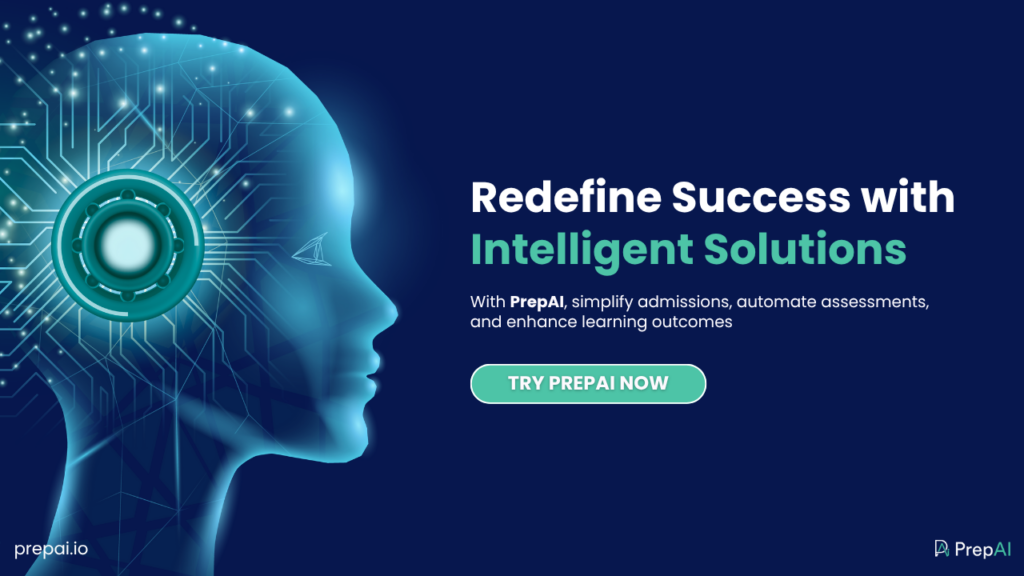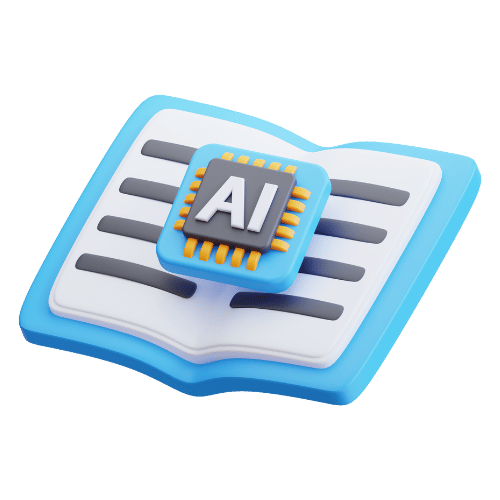Artificial intelligence is not optional but a compulsory technology in today’s educational sector. Here, we’ll discuss how AI-readiness is a new metric that measures the success of universities around the globe and builds their brand image.
Universities can no longer ignore the rise of artificial intelligence and its presence in the educational industry. AI readiness has become a compelling factor in determining how universities not only handle their administrative tasks but also offer a more engaging learning experience to students and establish themselves as branded institutions.
Whether in the US or on the African continent, universities are working to integrate AI into their systems in various ways. That’s because a study report showed 90% of students from over a thousand colleges in the US are using generative AI for classwork. In fact, 77% of students actually want colleges to offer courses in AI skills too. Meanwhile, educators and researchers in Africa are worried about the lack of a written AI policy in their universities, which is making it hard to implement the technology effectively. However, the universities are working diligently to overcome this challenge and ensure African students don’t lag when it comes to accessing AI or using it to enhance their learning experience.
The simplest way to initiate educational innovation with AI is by using a robust assessment solution that helps the faculty to save time and resources while ensuring compliance and quality standards.
Let’s read more about how universities can enhance their AI readiness and provide high-quality and personalized tech-driven education to their students.
Universities Should Embrace AI to Attract Success
Statistics show that 70% of higher education institutions are expected to use AI tools by 2025. A promising update is that 65% of university administrators think artificial intelligence can play a role in increasing student retention rates. Not just that. More than 80% universities are currently trying out pilot projects for personalized learning platforms.
These percentages are a clear indication that AI is not just the future of education but its present, too. AI-readiness is a vital factor and a potential trend in the global industry. Universities can use AI in the following ways:

Streamline Admission
Universities can streamline the admission process using AI. For example, screening of the applications can be automated to quickly sort and categorize students. Technical assessment tests or other entrance exams can be conducted online using an assessment solution like PrepAI. Instead of manually evaluating the test papers, the same platform can be used to automate grading and generate instant results. At-risk students can be identified using data analytics, which helps in maintaining higher retention rates. Universities can simplify and accelerate the admission process while also saving overhead costs and resources.
Effective Administration
Transforming the administrative process using AI is one of the academic technology trends that’s catching up quickly. With so much to do—admissions, scheduling classes, assigning faculty, breaks, projects, assignments, assessments, internships, placements, certification, etc.—universities have an intense backend admin system that keeps them going. Many of these processes can be automated and simplified by integrating artificial intelligence tools with the existing IT infrastructure. This reduces the risk of human error as well as the workload, without compromising quality.
AI-driven Assessments
Assessments are an essential part of learning. Universities have different types of assessments planned throughout the educational year. Apart from the official ones, professors may conduct random tests or additional exams/ quizzes as required to test the skills and knowledge of their students. With AI, there is no need to create the question paper manually or grade the submitted answers. For example, if the professor wants to conduct a competency-based assessment, they can use PrepAI, a powerful NLP (natural language processing) solution developed to save time and improve learning outcomes. Typically, the educator can save around 10 hours a month to create 100+ test questions. The more assessments they generate, the more time they save with PrepAI.
Advanced Analytics
AI-readiness in universities is also measured by how well the institution understands its students and designs personalized learning programs to align with their needs. Artificial intelligence can be used to derive advanced analytical reports about students’ strengths, weaknesses, capabilities, etc. Such insights can help the faculty and administrators in supporting students who are struggling with the lessons or dealing with other issues. This can, in turn, help reduce dropouts or other complications that may arise. Similarly, assessment tools like PrepAI provide insights about students’ performance in the tests and assist the faculty in providing personal data-driven feedback and guiding the students in the right direction.
Syllabus and Content Generation
Students already use generative AI for research and to create content for assignments, etc. While it is necessary to have proper guidelines for the ethical use of AI, universities don’t have to ignore its potential benefits. Faculty can also take advantage of generative AI for brainstorming, structuring the syllabus, generating content quickly, and so on. Professors can especially create multimedia content to make lessons more effective and interactive. Similarly, cognitive learning assessments can also be created using AI solutions such as PrepAI. The platform empowers the faculty to convert input data into different types of questions or to generate new content and convert it into an assessment.
Accreditation Compliance
Accreditation compliance is another important factor in ensuring the AI-readiness of universities. A large educational body should take every care to ensure that its procedures, assessments, etc., are aligned with the global/ national standards reinforced by authoritative bodies. For example, universities can maintain test integrity while automating the process by using PrepAI to streamline assessments. With an AI-powered assessment solution, universities can eliminate bias and prejudice in the testing process, reduce the risk of human error, and standardize grading metrics. This increases transparency in the process and gives the educational institution a good reputation.
Role of PrepAI in Ensuring Test Integrity in Universities
PrepAI is an NLP-based assessment solution built on Bloom’s Taxonomy framework to generate questions that promote critical thinking and test higher-order thinking skills. The platform not only creates assessments in a quick time, but also allows full control over the process. The faculty can edit and customize each question, add more questions manually, generate bulk assessments, and conduct the tests online by sharing the link with the students via email. Since PrepAI also has an auto-grading functionality, it automatically evaluates the submitted answers and provides instant results to the students.
This allows students to learn and improve their knowledge, discuss the assessments with the professors, and identify their abilities based on their performance. The faculty can use the in-depth insights provided by the platform to help students accurately pinpoint their strengths and weaknesses and find effective ways to fine-tune their skills. PrepAI increases transparency in the assessment process. It can be integrated with various third-party software, like learning management systems.

Final Words
Harnessing the power of artificial intelligence can help universities transform their model to increase student retention rates, personalize learning, optimize the use of resources, and reduce workload for the teaching and non-teaching staff.
The success of the university can be measured by its AI-readiness and how seamlessly it can adopt advanced technologies and integrate them into the existing systems. The process doesn’t have to be complex or overwhelming. Start by empowering the faculty to reduce workload, save time, and maintain the quality standards with PrepAI, a powerful assessment creation solution.
Talk to us to book a workshop and learn more!



